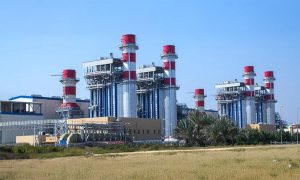Saudi construction sector ‘faces slowdown in 2017’
Private sector has delivered over 70% of construction awards in 2016, bucking the trend in previous years – David Clifton

Saudi Arabia’s construction market is expected to contract further in 2017, with the market likely to be heavily reliant on the private sector and Saudi Aramco, a leading construction researcher has said.
David Clifton, regional development director at Faithful + Gould, said that up to Q3 2016, there had been only $18 billion of construction awards out of the company’s forecasted $29.9 billion for 2016.
“To meet our upper estimate, a Makkah Metro contract award would be required (this would be subject to a Royal Decree). The private sector has delivered over 70% of awards, bucking the trend of all previous years on record,” Clifton said in a report released earlier this month.
READ MORE: Construction sector woes ‘pose risk to Saudi banks’
Speaking to Big Project ME, Clifton added that the primary challenges facing the KSA construction market revolved around the shutdown in the government awarding work in the past year. Coupled with a lack of liquidity to finance projects and contracting organisations on reasonable terms, the industry now faces an uncertain 2017.
“Government entities have typically awarded 70% to 75% of all construction contracts in KSA. In 2016, without the private sector and Saudi Aramco, there wouldn’t be much of a contracting market this year,” he explained.
“Liquidity is tightening globally, but with the regional governments withdrawing from local banks, their deposit to loan rates have increased. SAMA has raised the limit in February from 85% to 90%, but the market in the round has reached this level now.
“Government payments to contractors seized over the course of the year, and although this seems to be starting to unblock, there remains a significant level of money owed all through the supply chain.”
Clifton said however that it wasn’t all doom and gloom in the kingdom. With oil prices beginning a level of recovery to $45 a barrel and OPEC’s recent agreement to slow production output, the outlook for KSA’s finances seems to be improving.
He explained that although the Kingdom is still running a significant deficit of $86.92 billion in 2016, the upward pressure on oil prices will lead to an easing of fiscal pains.
READ MORE: Construction sector woes ‘pose risk to Saudi banks’
Furthermore, the Saudi government’s move towards modernisation and cost cutting has begun, with public sector salaries being cut and subsidies on fuel lifted. The lifting of subsidies on power and water have also been forecast.
This continued streamlining could lead to the amalgamation of some ministries and government departments.
In keeping with the NTP and Vision 2030, a National Project Management Office (NPMO) is also being created for government related entities to provide guidelines and governance for future project delivery. However, the NPMO is unlikely to be completely operational before the end of 2017, due to the complexities associated with designing and implementing these initiatives. This will have the knock-on effect of slowing government approval of new projects.
“The government has identified the need to restructure, reprioritise and reorganise, so as to limit the exposure to spending, diversify the economy and reduce reliance on the government sector for contracts,” Clifton said.
“To make any meaningful impact will take time. As a matter of urgency, however, the government needs to support some larger infrastructure schemes in the market as the diversification cannot just be switched on like a light,” he added.
READ MORE: Construction sector woes ‘pose risk to Saudi banks’

























